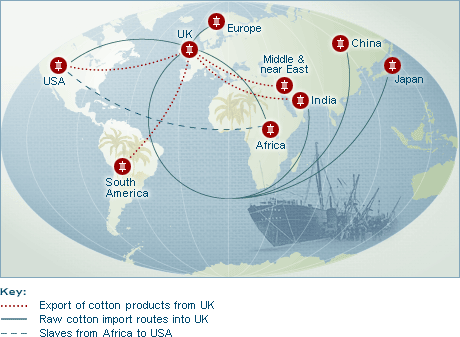
Why markets can never be free
International economic law is the regulatory regime for global capitalism. This point is often lost on—perhaps rejected by—law students who, as a consequence, fail to study the underlying economic system. This is a mistake as only an inadequate understanding of IEL is possible without at least some formality of the economic model at play.
Of course, as scholars of IEL know all too well, capitalism is both political and economic system. On one hand, capitalism conveys the medium through which resources are allocated—the operation of the market—while on the other dictating the overriding aim—accumulation. It is therefore essential to contrast the accumulation ethos of capitalism with the subsistence ethos of agrarianism and even the equality ethos of communitarianism. Each of these helps situate capitalism within a wider array of politico-economic models.
Markets, too, require greater elucidation. What is the market? And why should it be the medium through which resources are allocated? Market are places where people come to barter, exchange goods. When formalised, the exchange amounts to a transaction and will always involve some form of compensation (or consideration in contractual terms). Markets are often described as free, or at least wished to be free, but this claim makes little sense. Markets may look free but this is purely because the regulations in operation have been normalised to the point of invisibility. Can cocaine be sold in a supermarket? Are votes available to the highest bidder? Can I walk into a hospital and buy a kidney? No. No. And no. Why not? Law prohibits these transactions. The market is restricted in ways that cohere with our normative preferences. We often do not notice these interventions in the market but only because we agree with the rights defended by the regulation. Where we do not, interventions are viewed as interferences and opposed accordingly.
Just as markets are regulated and thus never ‘free’, so too are capitalist economies planned, no matter what Friedman and the Chicago school might say. Infrastructure investment, state-owned enterprises, industrial policies, national insurance, and more all form part of a state’s planning prerogative. Some are more comprehensive than others—indicative planning is the preferred nomenclature today—but planning is inevitable. Why? Bounded rationality.
What is bounded rationality? Consider the concept through a passive and active lens. From a passive perspective, we acknowledge that there are limited to our knowledge. We want to be rational but the world is complex, uncertain, unpredictable even. Can we presume to know what is in our self-interest? Since we cannot, we actively bind our choices within a regulatory frame. By imposing rules—what can and cannot be traded, which conditions are permitted and which are not—we reduce the complexity and help with the calculation of risk. Market regulations exist not just to impose normative standards but also to facilitate rational choice.
Much of what I am describing is well known to economists, even though they tend towards obfuscation when discussing regulation. Instead they deploy deceptive misnomers such as ‘free markets’ to lobby against the regulations they oppose while being blasé about the regulations that they endorse. Much of this is also known to sociologists and IEL scholars, especially those who study Max Weber.
In Weber’s investigation of capitalism, he enquires about the features of European law that were conducive to the emergence of this economic system in Europe and not elsewhere. His discoveries are essential in understanding the tendencies of IEL today.
Weber associated law with organised coercion. Organised coercion is distinct from power-based coercion as it possesses both legitimacy (elicits obedience) and rationality (formulates universal rules). To push the point further, the criteria of rule making are general and intrinsic to the legal system itself. We see a marked difference between European law, as it developed following the separation of religious and secular law, from traditional systems that continued to operate in other parts of the world. There is more.
Weber distinguishes between forms of domination or legitimate authority and types of legitimacy, highlighting three forms: traditional, legal, and charismatic. Only the ‘legal’ variety is capable of generating a system of general rules as it can leverage its autonomy to craft whichever rules are needed. Traditional systems (e.g. religious) or charismatic ones (e.g. demagogic) are arbitrary and thus ill-suited to the type of elaboration needed to develop a capitalist system.
In other words, legalism—with its higher degree of calculability and its capacity to develop new and necessary provisions—is better suited to a capitalist economic model than other normative orders. Consider that the arbitrariness of power, custom, and convention undermines the predictability, the certainty, the confidence needed to promote capitalism economic relations. How so?
The answer lies in both contract and property. If we could not rely on the state to enforce contractual obligations, to protect proprietary rights, how could a market function? Every transaction would be chance-based as contractual parties would not know if the other side intends to comply with their obligations. Contracts are respected, proprietary rights are respected because the state will do bad things to the parties that do not. More so than this, we, and I mean all of us, acknowledge the legitimacy | authority of the state to do bad things to us if we fail to comply or, as Weber demonstrated, organised coercion is central to a rational legal system; it is vital to capitalist economic relations.
Legalism freed ‘us’ of the bonds of kinship, religion, fealty, and other forms of traditional authority. We answer to the state and the state (almost) alone. The state provides a formal order whiten which economic actors operate. Is any of this system ‘free’? Only to the extent that we disregard the robust regulatory regime underpinning every transaction and the colossal coercive power of the state developed to ensure that we comply.
In the end, and contrary to much of the nonsense emanating from the political class, capitalist markets cannot function without regulation. The global economy, too, is heavily regulated and highly coercive. It could not be any other way.


